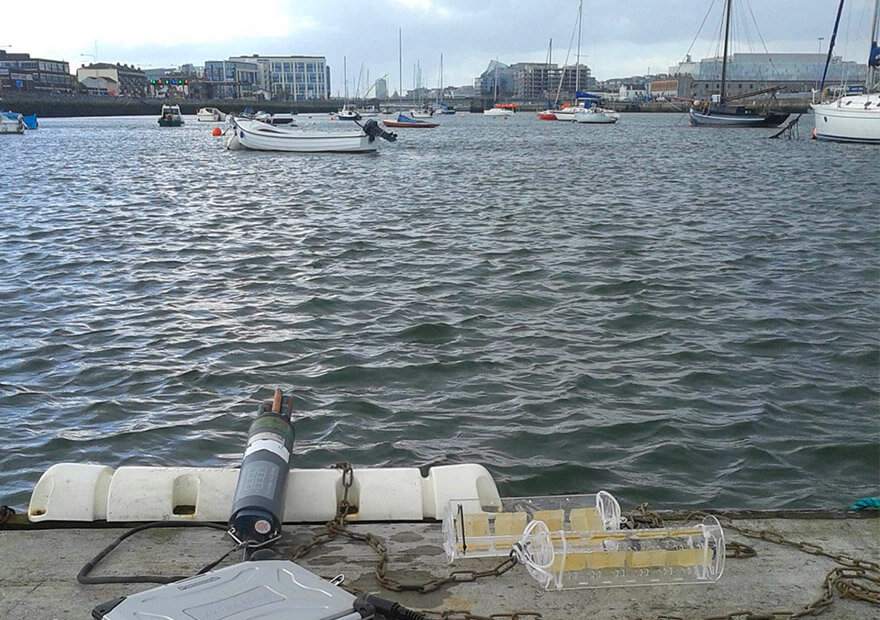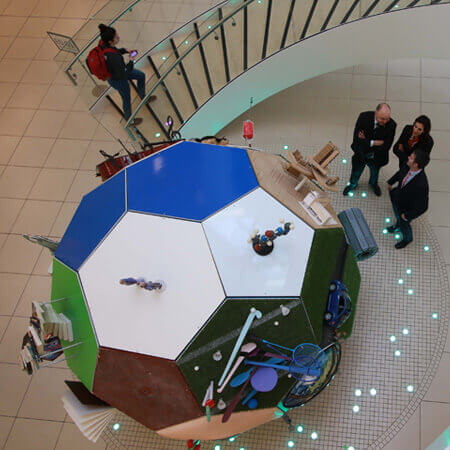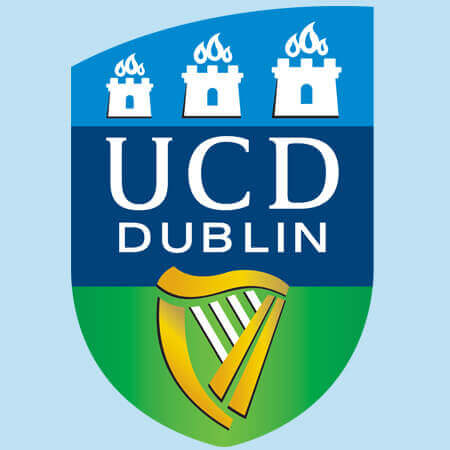What’s going on at Dublin’s water research centre
At Dublin City University, researchers are stepping up.
Professor of chemistry, Fiona Regan, is the founder and director of the Water Institute which, in 2015, brought together researchers from across a range of disciplines to carry out research into national and global water problems.
Why the world needs DCU’s Water Institute
The devastating conflict in Syria was sparked by a water scarcity that pushed people into the cities and provoked unrest. The unrest in Yemen is rooted in a water crisis.
Large parts of America and Australia are feeling the strain too. And experts fear a future war for water between India and China.
So, forget oil. The greatest battles and conflicts of the 21st century will be over humanity’s most precious resource – water.
Ireland, with an average of 150 days of rainfall along the east coast and 225 days in parts of the west, might seem immune to the problems of water supply. However, our policymakers are waking up to the challenge of providing safe, sustainable water and treating our wastewater.
Our main goal is simple: clean, safe water for everyone.
“Our main goal is simple: clean, safe water for everyone,” says Professor Regan. “We are working on agricultural projects, such as reducing nutrients to waterways. We are also looking at how best to provide safe water in Africa. And we are successfully monitoring Ireland’s waterways for pollutants so that we can protect swimmers and leisure users.”
Her team of investigative researchers is highly focused on technology and developing the expertise to use it effectively.
“We are looking at how to recover ammonia from the water that can be used as fertiliser,” she says. “The next wars will be over water and, in parts of the world, water is going to industry instead of people. Our big question is how can we use engineering and science to provide water to all people.”

Dublin Bay – Images courtesy of DCU
Coming together to create solutions
Part of the solution to this problem lies in the cross-disciplinary nature of the Water Institute’s work. Among the researchers engaged in different projects, there are academics from chemistry, environmental science, finance, engineering and public policy. Different types of organisations are represented too.
“We’re working with researchers from other third-levels and non-governmental organisations, as well as private companies and state agencies – such as the Environmental Protection Agency,” says Regan. “We will, of course, work with industry if there is a problem that we can help them to solve. And this may, in turn, lead to new technologies – as well as spin-out companies.”
This may, in turn, lead to new technologies – as well as spin-out companies.
Increasingly, the world’s best researchers are reaching out beyond their own institutions to work with other academics. And the Water Institute is no different.
“We’re working with the Stockholm Water Institute on developing policy around [national boundaries] where water is, or could be, in dispute,” explains Regan. “We’re working with the Catalan Institute on water scarcity and Arizona State University on water and health.”
For the past few years, the Water Institute has even collaborated with local Dubliners to test the quality of the city’s rivers and lakes. It also teamed up with one of the startups at DCU Alpha to develop a device that could communicate bathing water quality to the public in real-time.
Using tech to address Ireland’s issues with water
The Water Institute has also worked closely with computer giant IBM on the ‘internet of things’ – embedding connections in everyday objects so they can send and receive information relating to water.
The internet of things can also let utility providers know where leaks are, because sensors can indicate pressure drops. The Water Institute has also joined forces with building materials company Kingspan to develop a smart sensor for water level monitoring. This could help provide solutions to flooding in some parts of the country.
People point out that water falls from the sky.
“The technology has real-time capability and an app that can be easily downloaded and accessed by end users,” explains Regan, who is working with Dr. Dian Zhang on the project.
“When river waters rise to a certain level, sensors send out a warning alert via SMS to a local business owner, farmer or householder in a vulnerable area,” she explains. The sensors are also affordable, which means they can be used to create a nationwide network.
However, Professor Regan says there’s still a lot of work to do in getting people to recognise the value and scarcity of water.
“I’ve heard vox pops where people point out that water falls from the sky. And yes, that is true,” she says. “However, the cost of treating the water to get it safely to your tap, or treating it when it comes from your toilet, is less known. It’s not that people are ignorant, but there does need to be more work put into explaining this to them.”
And that’s exactly what The Water Institute aims to do.
To find out more about its latest projects, visit the Water Institute’s website.



